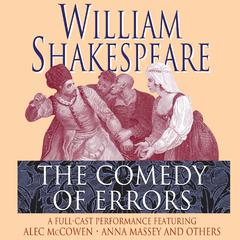![A Midsummer Nights Dream [Russian Edition] Audiobook, by William Shakespeare](https://media.audiobookstore.com/j/c/jcno/jcno-square-1536.jpg) Play Audiobook Sample
Play Audiobook Sample
A Midsummer Night's Dream [Russian Edition] Audiobook
![A Midsummer Nights Dream [Russian Edition] Audiobook, by William Shakespeare](https://media.audiobookstore.com/j/c/jcno/jcno-square-1536.jpg) Play Audiobook Sample
Play Audiobook Sample
Quick Stats About this Audiobook
Total Audiobook Chapters:
Longest Chapter Length:
Shortest Chapter Length:
Average Chapter Length:
Audiobooks by this Author:
Publisher Description
“A Midsummer Night's Dream” is one of Shakespeare's most enigmatic comedies.
Light, ironic, fantastic, it plays on the delusions and prejudices of man in love, but behind it all lies a philosophical view of the vicissitudes of fate and its influence on the vicissitudes of life, the illusory magic of deception and freedom in insight.
Download and start listening now!
A Midsummer Night's Dream [Russian Edition] Listener Reviews
Be the first to write a review about this audiobook!
About William Shakespeare
William Shakespeare (1564–1616), English poet and dramatist of the Elizabethan and early Jacobean period, is the most widely known author in all of English literature and often considered the greatest. He was an active member of a theater company for at least twenty years, during which time he wrote many great plays. Plays were not prized as literature at the time and Shakespeare was not widely read until the middle of the eighteenth century, when a great upsurge of interest in his works began that continues today.























